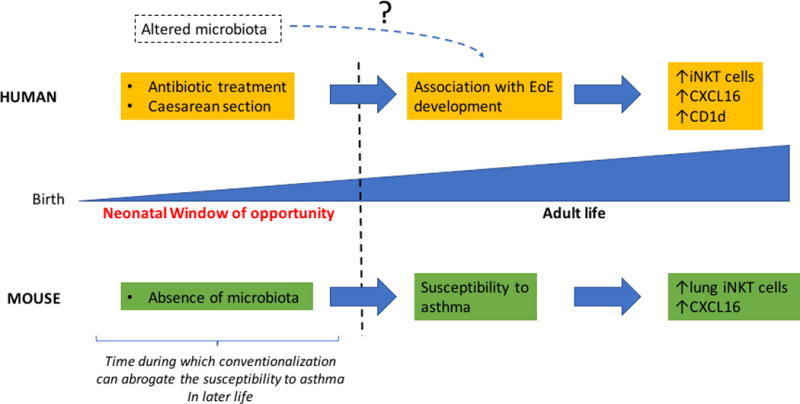Figure 2.

Role of early life microbiota in the regulation of iNKT cells and development of allergic disease in human and mouse.
Caesarean section and antibiotic treatment are associated with modifications of the microbiota in early life and to EoE development in later human life. Whether these microbial modifications are directly related to these diseases in humans remains to be established. EoE development is an allergic disease that depends on iNKT cell activation. iNKT cell numbers as well as CXCL16 and CD1d expression are increased in EoE patients less than 5 years of age. These increases are normalized by an elimination diet. An absence of microbiota in GF mice during early life leads to an accumulation of lung iNKT cells, increased CXCL16 expression and increased susceptibility to asthma in later life. Conventionalization with microbiota during a specific early life time frame, but not thereafter, can normalize the number of iNKT cells in the lung and susceptibility to colitis and asthma.
